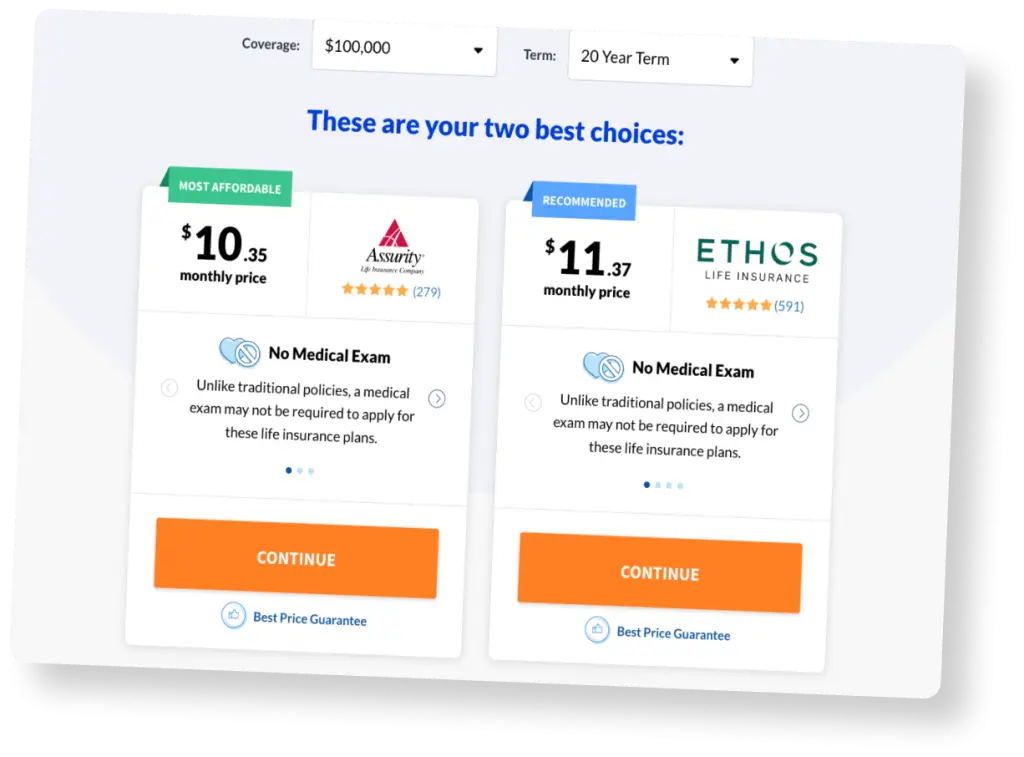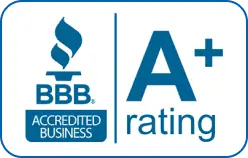A key man policy is an essential type of life insurance that helps protect businesses from financial hardship when a critical individual passes away. These policies are usually taken out on founders, executives, or anyone whose loss could significantly disrupt operations. Businesses can use the payout from a key man policy to cover expenses such as hiring a temporary replacement or paying off debts.
Companies across various industries rely on key person insurance to maintain stability. These policies offer peace of mind, knowing the business can continue operating smoothly even during unexpected challenges. Many businesses incorporate this insurance into their risk management strategy.
Key Takeaways of Key Man Policy Uses
- A key person insurance policy protects businesses from financial loss if a crucial employee passes away or becomes disabled.
- Businesses can choose between key person life insurance, key employee life insurance, and key person disability insurance to fit their needs.
- These policies help cover business expenses, ensuring smooth operations during transitions.
- A key person policy can assist in guaranteeing business loans and protecting financial commitments.
- A permanent life policy offers long-term coverage and cash value growth, making it a valuable financial tool.
Understanding Key Man Policy
Key Man Insurance is a crucial part of many businesses. It is a type of life insurance policy that helps protect a company from financial loss if a key employee dies or becomes unable to work. This policy ensures that the business can continue operating smoothly during difficult times.
The insurance policy is owned by the business, which also pays the premiums. If something happens to the key person, the business receives a payout. This money can be used to recruit and train a replacement or to cover any loss of profits during this transition period.
Businesses often purchase this policy for individuals who are vital to their operations. This might include the owner, a partner, or a top executive. By securing a key man policy, companies can safeguard against unexpected disruptions.
Benefits of Key Person Insurance
Key person insurance plays a vital role in protecting businesses by providing financial security when a crucial member can no longer contribute. This insurance type acts as a safety net, helping companies manage potential losses effectively.
Protecting Your Business
Key person insurance is essential for businesses looking to safeguard their future. When a key individual, like an owner or top executive, is unable to work due to death or disability, the company might experience disruptions. This loss can be detrimental, especially if the person contributes unique skills or generates substantial revenue.
The policy helps cover financial gaps that might arise, such as hiring a replacement or managing cash flow. Without this coverage, a business may struggle to stay afloat during difficult transitions. Thus, having this insurance ensures that companies can continue operations without severe financial setbacks.
Ensuring Financial Security
Securing the company’s financial stability is another crucial aspect of key person insurance. This type of policy provides funds to maintain economic health when a key member is lost. It enables businesses to cover ongoing expenses and debts that the deceased or disabled individual might have otherwise handled.
With their financial needs managed, companies can focus on rebuilding and strategizing for the future. By establishing this safety measure, businesses protect themselves from unforeseen losses, ensuring a stable foundation. This security not only benefits the company but also reassures employees, stakeholders, and clients about its steady outlook.
Types of Key Man Insurance Policies
Key man insurance policies help businesses safeguard against the loss of essential personnel. These policies can be tailored to meet specific needs, often falling under two main types: term life insurance and whole life insurance. Each has its unique features and benefits.
Term Life Insurance
Term life insurance is a popular choice due to its simplicity and affordability. It provides coverage for a set period, such as 5, 10, or 20 years. If the key person dies during this term, the business receives a payout.
This option is suitable for businesses that need coverage for a specific project or timeframe. Premiums are typically lower compared to other insurance solutions, making it budget-friendly for small businesses.
Companies can choose term lengths that match business objectives, ensuring they only pay for what they need. If the insured person outlives the term, the policy expires without a payout. This type focuses on providing high coverage amounts for relatively low costs.
Whole Life Insurance
Whole life insurance offers lifelong coverage, providing a death benefit whenever the insured passes away. This type is more expensive than term policies but can be a good investment for businesses seeking comprehensive insurance coverage.
Unlike term life options, whole life policies build cash value over time. This feature can be used as a financial tool, allowing the business to access funds if needed.
Premiums remain stable, which helps with long-term financial planning. Whole life insurance also integrates flexibility, supporting various company strategies. Businesses should consider this option when they need ongoing coverage for valued employees.
Whole life offers the dual benefit of insurance protection and cash accumulation, making it a versatile choice for extensive business needs.
Determining the Insurance Coverage
Choosing the right keyman insurance involves understanding how much coverage is needed and adjusting as circumstances change. This ensures financial security if a key person dies or becomes incapacitated.
Sum Assured Calculation
Calculating the sum assured involves assessing the contribution of the key person to a business. Companies should evaluate the potential financial impact their loss might cause. This includes considering lost revenue and hiring costs.
Factors like the key person’s salary, profit contribution, and impact on sales are crucial. A decision can be made using these considerations alongside tools, such as a key man insurance calculator. It ensures the chosen sum properly reflects the key person’s value.
Adjusting Coverage Needs
Once the initial sum assured is determined, it’s important for businesses to periodically review and adjust their coverage. This accounts for impacts of growth, market conditions, or role changes of key individuals. Companies should reassess if the current coverage still meets their needs.
Businesses may need to increase the sum assured if a key person’s importance rises. In some cases, they might reduce coverage. Updating coverage ensures appropriate security. Factors for determining this include business expansion, changes in revenue, or any significant restructuring that affects key roles.
Financial Implications of Key Man Insurance
Key Man Insurance is essential for maintaining a company’s stability in case a crucial team member is lost. Understanding premium payments and tax considerations ensures that the business remains financially secure and benefits fully from the death benefit.
Premium Payment Strategies
When it comes to premium payments, businesses need to choose strategies that balance cost and coverage. Regular premiums can be budgeted as a predictable expense, making it easier for companies to manage their cash flow.
Some policies build cash value over time, which can be useful if the company needs additional funds in the future. Companies can access this cash value to cover unexpected expenses or invest back into the business.
Paying premiums annually instead of monthly often results in discounts. This method can help save money in the long run. Business owners should evaluate if paying a larger lump sum upfront is a feasible option.
Tax Considerations
Key Man Insurance has specific tax implications that business owners must understand. Generally, the premium payments are not tax-deductible for the company. This is an important consideration when planning the company’s financial strategy.
However, if a death benefit is paid out, it is typically not subject to income tax. This provides financial security to the business without added tax burden.
Moreover, certain tax benefits might apply if the policy builds cash value. It’s crucial for companies to consult with a tax professional to navigate the complexities of tax laws and make informed decisions that best suit their financial goals.
Selecting the Right Insurance Provider
When selecting a key man insurance policy, it’s important to make informed choices. Key factors include the variety of services offered and feedback from existing clients, which can be helpful in evaluating reliability.
Comparing Services
Comparing services is crucial in choosing the best insurance provider. Start by examining the different types of insurance solutions they offer. It’s important to ensure coverage fits the specific needs of the business. Some providers might offer additional services, such as financial planning support or business continuity assistance.
A detailed comparison of these services helps in identifying which provider offers comprehensive coverage. Don’t forget to check if they have experience in the industry of the business needing coverage. This can make a big difference in understanding the unique risks involved. Finalizing the decision involves understanding the flexibility of the provider regarding policy adjustments as the business grows or changes.
Assessing Sites and Reviews
Examining sites and customer reviews is another vital step. Websites of insurance providers can offer detailed insights into what they offer and their history. Look for user-friendly platforms that provide clear, transparent information about policies. Often, these sites will have tools or calculators that can assist in estimating costs, which is a handy feature.
Reviews play an important role in determining customer satisfaction. Check for consistency in positive feedback and how they manage claims processes. Reading about others’ experiences offers a real-world perspective on the efficiency and reliability of the provider. Be wary of sites that do not have a robust presence or those with overwhelmingly negative reviews, as these can be red flags.
Frequently Asked Questions about Key Man Policy Uses
How Does Key Man Insurance Differ from Regular Life Insurance?
Key man insurance is specifically designed for businesses to cover financial losses when a vital employee dies or becomes incapacitated. Unlike regular life insurance, which benefits an individual’s family, this policy benefits the company by providing financial relief during challenging times.
What Are the Tax Implications of Key Man Life Insurance?
Premiums paid for key man insurance are generally not tax-deductible. However, the death benefit received by the company is typically tax-free, providing it complies with specific regulations. Businesses should consult a tax professional to navigate any complexities surrounding their policy’s tax treatment.
What Costs Can Be Expected When Purchasing Key Man Insurance?
Key man insurance costs vary based on factors like the individual’s age, health, and the coverage amount needed. Policy underwriting may also consider the key person’s role and impact on the company. Companies should seek quotes from various providers to determine the best value for their situation.
What Happens to a Key Man Insurance Policy If the Employee Leaves the Company?
If the key employee leaves, the business typically has a few options. They can cancel the policy, assign it to the departing employee, or transfer it to another key person within the company. It’s important for the business to review the policy terms and collaborate with their insurer when considering their options.
Conclusion and Summary of Key Man Policy Uses: What Can You Use It For?
A well-structured key person insurance policy is an essential safeguard for businesses facing unexpected disruptions. Whether through a key person life insurance plan or key employee insurance, companies can ensure financial stability when a crucial member is lost. The right key person policy can provide funds to cover hiring costs, replace lost revenue, and protect ongoing operations.
For many businesses, securing key employee life insurance through a permanent life insurance option offers additional benefits, including cash value accumulation. A permanent life policy can be an asset in long-term planning, offering more than just protection. Additionally, for those seeking coverage beyond life insurance, a key person disability insurance plan ensures financial support if a key employee becomes unable to work.
Businesses that rely on key individuals often require financial backing for business loans and other commitments. By guaranteeing business loans and covering critical business expenses, these policies provide security for both the company and its stakeholders. Protecting the foundation of a business is not just about preparation, it’s about ensuring longevity and success.
trusted by 5,000+ clients
Get Personalized Quotes Tailored to Your Company’s Needs














